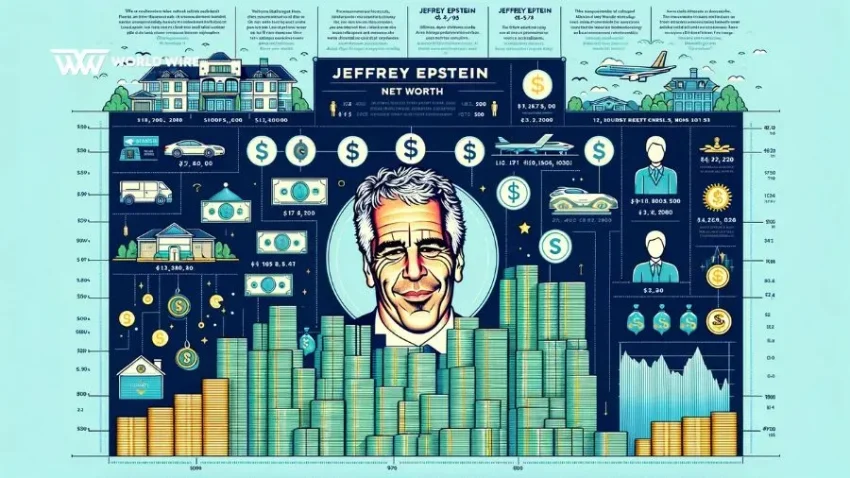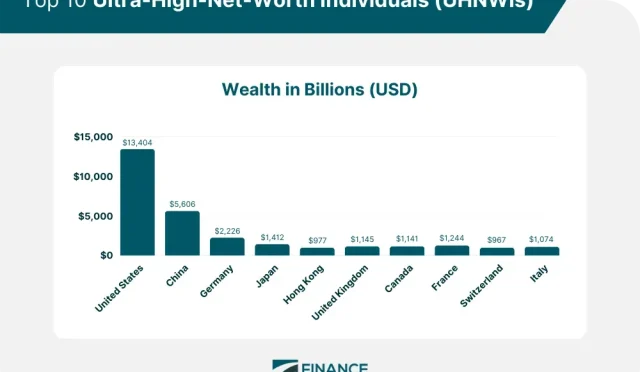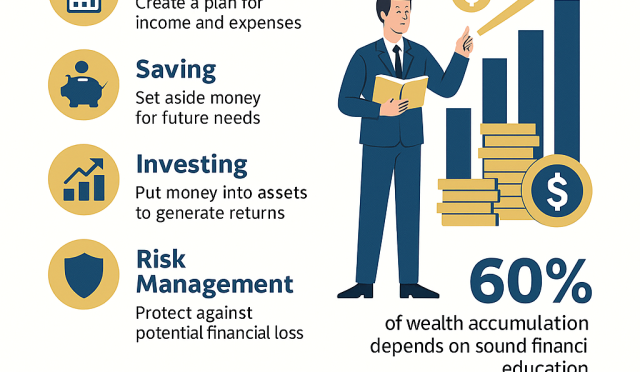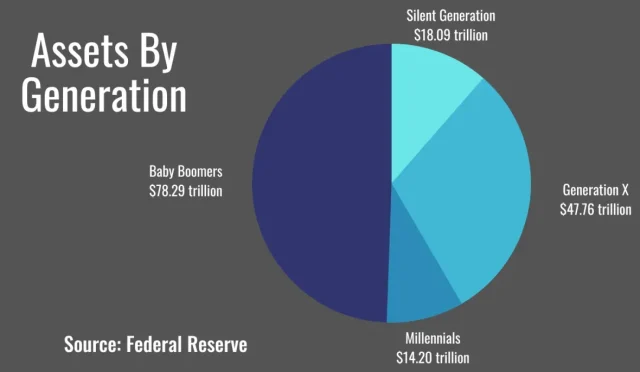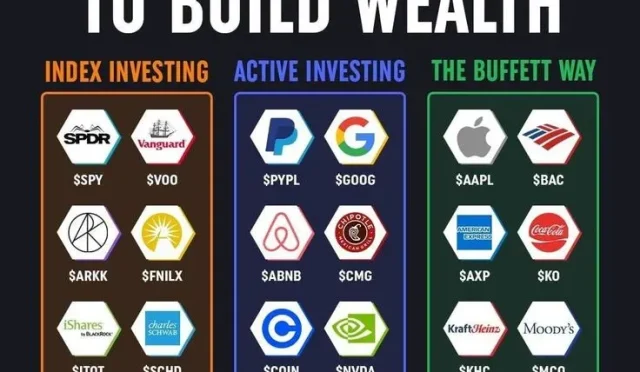Jeffrey Epstein’s wealth, shrouded in controversy and intrigue, has captivated the public’s attention, serving as the foundation for numerous theories and speculations. Esteemed as a financier with connections to the elite, Epstein’s financial dealings included facilitating relationships among high-profile clients, political figures, and business moguls. His extraordinary network allowed him to wield significant political influence, with revelations of connections that even brought down ambitious politicians. Despite his estimated fortune of nearly $600 million at the time of his untimely death, the origins of Epstein’s wealth remain largely enigmatic. As new details from his business relationships continue to unfold, the layers of his financial empire beckon further investigation and scrutiny.
The curious saga surrounding Jeffrey Epstein’s affluence reveals a complicated narrative about a man entwined with the rich and powerful. His substantial assets, cultivated through strategic connections and alluring business collaborations, led to a controversial stature within social and political circles. Questions regarding the true nature of Epstein’s earnings echo through discussions of his influence on prominent figures and high-profile clients. As an enigmatic financier, his life story serves as a case study in the interplay of wealth, power, and the darker aspects of ambition in the realm of elite social dynamics. The shadow cast by his financial legacy continues to provoke discourse on accountability and the repercussions of privilege.
The Rise and Mystery of Jeffrey Epstein’s Wealth
Jeffrey Epstein’s financial ascent remains shrouded in ambiguity, with varying sources reporting his net worth at nearly $600 million at the time of his death. This staggering wealth was built through a series of connections and high-profile clients, including Les Wexner and Leon Black, who played significant roles in Epstein’s financial dealings. Epstein’s transition from a modest two-bedroom apartment to owning multimillion-dollar properties indicates that he had access to lucrative opportunities, perhaps facilitated by his business relationships and connections within elite circles.
Despite his wealth, the genesis of Epstein’s fortune invites scrutiny, especially in light of various allegations and financial mismanagement throughout his career. Reports from his associates paint a picture of a man who crafted a complex network of influential figures, enriching himself while surrounding himself with power. Moreover, Epstein’s operational strategies, such as utilizing offshore companies and navigating tax advantages in the U.S. Virgin Islands, raise questions about transparency and legality, signaling a deeper investigation into the mechanisms behind his financial success.
Epstein’s Influence on Political and Business Landscapes
Epstein’s connections reached into the highest echelons of political and business spheres, showcasing a remarkable ability to facilitate introductions that could launch careers. He acted as a bridge between power players, leveraging his relationships to create a web of influence that spanned continents. For example, his role in organizing meetings between banking executives and influential figures like Bill Gates and Sergey Brin demonstrated how Epstein was not merely a financier but a significant player in shaping opportunities for himself and his associates.
These business relationships extended beyond mere introductions; they often involved lucrative deals where Epstein reaped substantial financial rewards. By receiving hefty fees for facilitating high-stakes transactions, such as the sale of stakes in hedge funds, Epstein demonstrated a deep understanding of the financial landscape that often utilized his political influence as leverage. This duality of being a financier and a political intermediary illustrates how Epstein operated at the intersection of both worlds, expanding his network while consolidating his power.
The Fallout from Epstein’s Connections
The exposure of Epstein’s connections resulted in significant repercussions for numerous high-profile individuals, particularly politicians who found themselves entangled in controversies stemming from their associations with him. One such instance was the fallout from Peter Mandelson’s connections to Epstein, which forced resignations and created crises within the UK government. Such scandals disrupt reputations and illustrate the political risk associated with being linked to figures like Epstein, whose activities have drawn extensive media attention and public scrutiny.
Moreover, the ongoing investigations into Epstein’s network reveal an intricate web of relationships where many influential figures may have been complicit, whether knowingly or unknowingly. The implications of these connections stretch beyond personal reputations; they traverse into significant economic ramifications as businesses and political organizations distance themselves from Epstein’s legacy. This phenomenon serves as a cautionary tale for those navigating the delicate balance of influence within both the political and business sectors.
Epstein’s High-Profile Clients: A Double-Edged Sword
Epstein’s high-profile clients, including billionaires and political leaders, highlight the dual nature of his business relationships. While these connections afforded him incredible influence and financial rewards, they also embedded him within a controversial morality framework, where his wealth was directly tied to the scandals that ensued following his criminal conviction. As media investigations uncovered elaborate payment structures revealing how Epstein benefited financially from his high-profile clientele, it became clear that his wealth was not simply a product of financial acumen but entwined with questionable ethics.
The reliance on high-profile clients for financial sustenance created a narrative where Epstein’s business dealings became scrutinized through the lens of his personal actions. This circumstance acted as a double-edged sword for his clients, who often faced backlash and reputational damage linked to their association with Epstein. Therefore, the relationships Epstein fostered, while lucrative, have proved to be fraught with peril as scandal unveils the darker undertones of wealth accumulation within elite circles.
The Mechanisms of Epstein’s Financial Operations
Epstein’s financial operations involved a complex array of transactions that often skirted legal boundaries, raising inquiries about the ethical standards upheld in his dealings. Reports confirming that Epstein operated under U.S. Virgin Islands laws, which allowed substantial tax savings, illustrate how his business model was predicated on exploiting economic loopholes. His ventures, often characterized as opaque, relied heavily on offshore companies and complex financial maneuvers that required a careful balance of legality and subterfuge.
Additionally, documents from lawsuits involving Epstein’s companies shed light on the various financial instruments he employed, some of which were unprecedented in their execution. The characterization of himself as a ‘‘successful businessman’’ reveals his perception of legitimacy, where he was able to cultivate an image of success despite facing criminal implications. This duality creates a paradox around Epstein’s wealth, where his financial practices could have either represented innovation or exploitation within the financial industry.
Epstein’s Criminal Activities and Their Financial Implications
The revelations surrounding Epstein’s criminal activities unveiled the stark contrast between his lavish life and the darkest undercurrents of his operations. As authorities publicized investigations into his sex trafficking and abuse, the financial implications reverberated throughout his business dealings. Many of his associates began to distance themselves from Epstein, fearing guilt by association and damage to their own reputations. The unraveling of his network not only painted a grim picture of his activities but also highlighted the potential legal repercussions facing those involved with him.
Moreover, the spotlight on Epstein’s financial dealings has instigated broader discussions about accountability within the elite classes. As investigations into the sources of his wealth continue, questions also arise about the responsibility of financial institutions that provided him with access to resources despite numerous red flags. The scrutiny surrounding Epstein’s operations and the financial institutions linked to him may pave the way for more stringent regulations to prevent similar situations in the future, particularly regarding how wealth is acquired and the ethics behind financial approval.
Rebuilding After the Epstein Scandal: A Long Road
The aftermath of the Epstein scandal continues to demand effort and reform, particularly within the institutions that were once entangled with him. As stakeholders in his various business dealings grapple with the fallout from this extensive controversy, it remains evident that rebuilding reputations will be a daunting task. Many financial organizations have been forced to reassess their risk assessment protocols, ensuring that connections to controversial figures like Epstein are not overlooked in future dealings.
Furthermore, the cultural implications of Epstein’s scandal extend beyond mere financial mismanagement; they challenge the ethical compass of society’s elite. The call for transparency and integrity in business practices has never been more pronounced, as stakeholders strive to establish trust with their clients and communities. Initiatives aimed at improving due diligence and promoting ethical conduct are becoming increasingly paramount in restoring confidence in financial systems that were once exploited by individuals like Epstein.
Conclusion: The Lasting Legacy of Epstein’s Network
Ultimately, the legacy of Jeffrey Epstein’s network serves as a potent reminder of the intertwined nature of wealth, influence, and accountability. His connections, while initially appearing to bolster his standing in society, revealed the precarious balance of power that many individuals navigate in high-stakes environments. As the implications of his actions continue to unfold, the conversation surrounding ethical conduct in finance and politics remains pressing.
Epstein’s influence has left an indelible mark on contemporary discussions regarding wealth and morality. The unfolding narrative prompts a re-examination of how power operates within elite circles, particularly in relation to abuse, exploitation, and the accountability of those who enable or participate in such systems. This enduring legacy necessitates a deeper commitment to reforming financial practices and political associations to prevent history from repeating itself.
Frequently Asked Questions
What is the estimated value of Jeffrey Epstein’s wealth?
At the time of his death, Jeffrey Epstein was valued at nearly $600 million. This wealth largely stemmed from his connections with high-profile clients such as Les Wexner, the founder of Victoria’s Secret, and Leon Black, co-founder of Apollo Global Management.
How did Epstein’s financial dealings contribute to his wealth?
Jeffrey Epstein’s financial dealings included charging exorbitant fees to clients for his services, which produced over $490 million in income from wealth management and tax advice, mainly stemming from his two billionaire clients, Wexner and Black.
What role did Epstein’s connections play in his wealth accumulation?
Epstein’s connections to influential figures in politics and business provided him with opportunities to facilitate lucrative deals and maintain a high-profile lifestyle, which in turn, bolstered his financial standing.
What can we learn about Epstein’s business relationships from recent investigations?
Recent investigations revealed Epstein facilitated connections and financial transactions for high-profile clients, navigating complex financial systems and purportedly saving substantial amounts in taxes, which significantly contributed to his wealth.
Did Epstein have political influence through his wealth?
Yes, Jeffrey Epstein leveraged his wealth to build a network of influential connections across politics and business, providing him a platform to exert considerable political influence, evidenced by his interactions with prominent political figures.
What were Epstein’s significant assets and holdings?
Epstein’s significant assets included extravagant properties in New York, Palm Beach, and Paris, two private islands, a helicopter, and two jets, collectively valued at approximately $380 million.
What were the implications of Epstein’s financial connections after his passing?
Following his death, the implications of Epstein’s financial connections were scrutinized, revealing questionable dealings and the potential misuse of funds, which caused reputational damage to various associated parties, including banks like JPMorgan Chase.
How did Epstein’s past criminal conviction affect his business and financial dealings?
Epstein’s 2008 conviction for sex-related crimes tarnished his reputation, significantly diminishing his wealth and client base, though some financial entities continued their associations with him despite warnings.
Why is Epstein’s wealth considered mysterious?
Epstein’s wealth is deemed mysterious due to the sudden increase in his financial status during the late 1990s, coupled with the lack of transparency surrounding the origins of his financial dealings and business relationships.
What were the findings related to Epstein and tax savings?
Investigations revealed that Epstein’s businesses in the U.S. Virgin Islands led to an estimated tax saving of $300 million between 1999 and 2018, raising further questions about the legitimacy of his wealth and financial practices.
| Key Point | Details |
|---|---|
| Jeffrey Epstein’s Wealth | Epstein was valued at nearly $600 million at the time of his death. |
| Sources of Wealth | His wealth primarily came from connections with billionaire clients, including Les Wexner and Leon Black. |
| Career Role | Epstein acted as a freelance client development officer, linking wealthy business figures with political power. |
| Gifts and Expenses | Epstein was known for giving extravagant gifts, with a spreadsheet detailing nearly $1.8 million in luxury items. |
| Real Estate Holdings | He owned multiple luxury properties, including homes in New York and Palm Beach, and two private islands. |
| Controversy and Legal Issues | Epstein’s association with influential figures and legal troubles impacted his reputation and finances. |
| Financial Deception | Complex financial transactions involving the Maxwell family suggested a history of deception. |
Summary
Jeffrey Epstein’s wealth was a topic shrouded in mystery, even as he was valued at nearly $600 million at the time of his death. His financial background was deeply intertwined with powerful connections to high-profile clients, particularly in the finance and political sectors. Epstein’s tactics of utilizing his wealth to facilitate interactions and leverage influence are now infamous, cementing his controversial legacy. Despite his financial acumen, the morally dubious means through which he amassed his fortune and his associations with a roster of elite individuals raise ethical questions that continue to resonate within the realms of wealth and authority.

